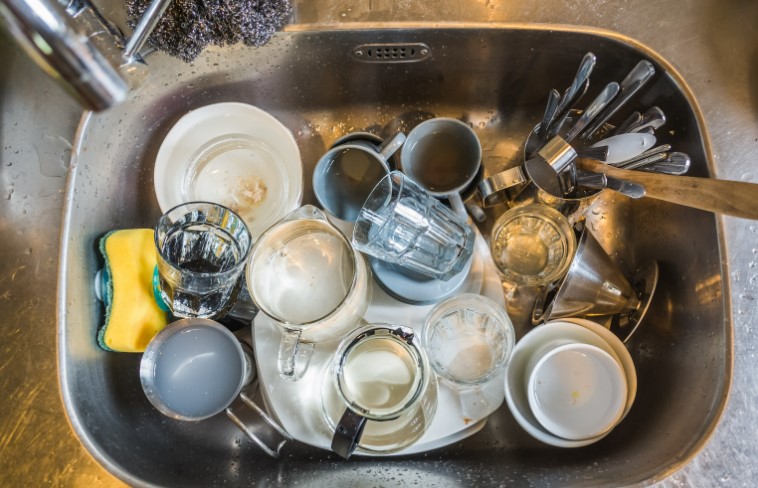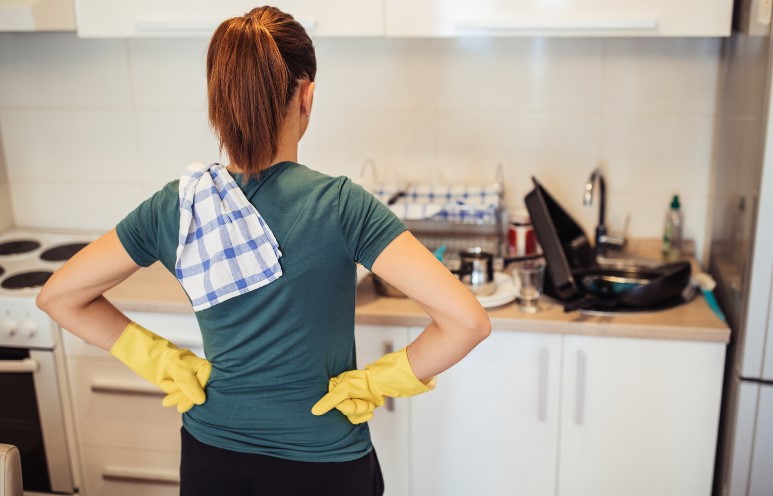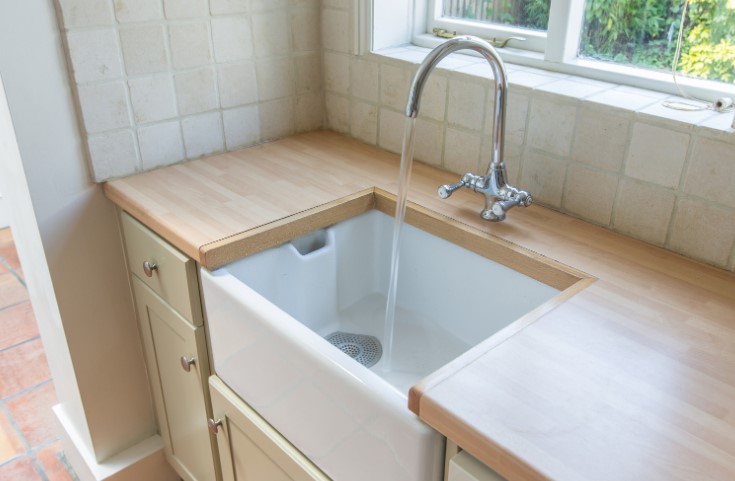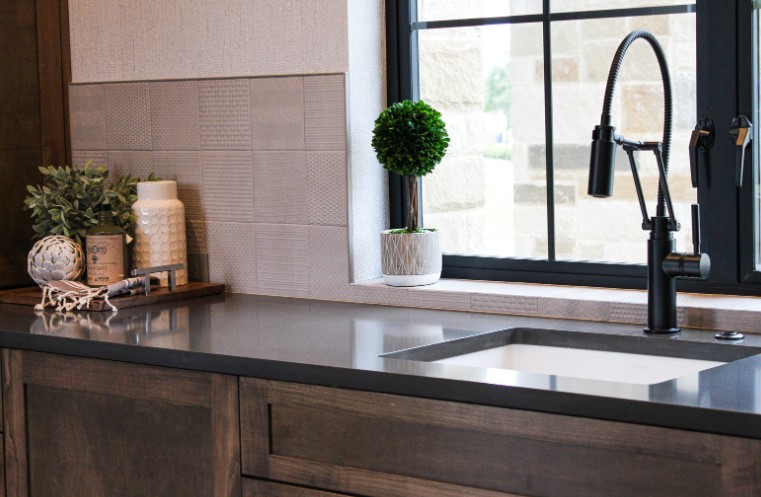- Why Does Your Kitchen Sink Smell and What Can You Do About It?
- What Causes Smells in the Kitchen Sink?
- How Can I Identify the Source of the Odour?
- What Are Some Natural Remedies for Removing Kitchen Sink Smells?
- Step-by-Step Guide to Remove Bad Smells from Your Kitchen Sink
- How Can I Prevent Future Kitchen Sink Smells?
- When Should I Call a Professional Plumber?
- Conclusion
- Frequently Asked Questions (FAQ)
Why Does Your Kitchen Sink Smell and What Can You Do About It?
If you’ve ever noticed an unpleasant smell coming from your kitchen sink, you know how frustrating it can be. Whether the smell is caused by food particles, grease buildup, or bacteria, these odours can spread quickly through the kitchen, affecting the overall cleanliness and atmosphere.
Luckily, there are simple ways to eliminate these smells and keep your kitchen fresh. This guide on how to remove smell from kitchen sink, will walk you through the causes of kitchen sink smells, how to identify them, and practical, step-by-step methods to get rid of them once and for all.
What Causes Smells in the Kitchen Sink?
Several factors can lead to unpleasant odours in your kitchen sink:
- Food Particles: Leftover food particles often get washed down the drain and decompose, causing bad smells.
- Grease Buildup: Grease and oil stick to the inside of pipes, trapping food particles and contributing to foul smells.
- Bacterial Growth: Moisture inside the pipes creates the perfect environment for bacteria to grow, which leads to the release of unpleasant gases.
Identifying the root cause is the initial step to eliminating the smell for good.

How Can I Identify the Source of the Odour?
To fix the problem, you need to locate the source of the smell. Here’s how:
- Check for Clogs and Unclog : Look into the drain for visible blockages. Run water and see how it drains—if it’s slow, there’s likely something clogging the pipes.
- Inspect the Garbage Disposal: If you have a garbage disposal, it might be harbouring small food particles that cause odours. Check it carefully or use a cleaning brush to look for trapped debris.
- Smell Near the Drain: Sniff close to the drain. If the odour is strongest there, it’s likely coming from the pipes.
What Are Some Natural Remedies for Removing Kitchen Sink Smells?
Using natural solutions is an effective and safe way to tackle kitchen sink odours. Here are two highly recommended remedies:
1. Baking Soda and Vinegar:
- Pour half a cup of baking soda.
- Follow with half a cup of white vinegar. The mixture will fizz as it works to break down food particles and grease.
- Let it sit for 10-15 minutes.
- Finish by flushing the drain with boiling water to clear out any remaining debris.
2. Boiling Water:
- Boil a kettle of water.
- Slowly pour it down the drain in stages. The heat will help dissolve grease and wash away any small particles.
- Repeat this process once a week to prevent future odours.
These natural methods are environmentally friendly, safe for your plumbing, and highly effective in deodorizing your kitchen sink.
Step-by-Step Guide to Remove Bad Smells from Your Kitchen Sink
Here’s a detailed step-by-step guide on how to remove bad smells from your kitchen sink:
1. Clear Blockages
Step 1: Start by inspecting the drain for any visible clogs.
- Use a plunger to loosen any blockages, or opt for a drain snake to clear deeper clogs.
- If you don’t have a drain snake, a simple wire coat hanger can be bent and used to fish out blockages.
- Ensure that water flows freely after clearing the blockage.
2. Flush with Hot Water
Step 2: Flush the drain with hot water.
- Tip: Avoid using boiling water if you have PVC pipes, as it could damage them.
- This step helps loosen and wash away any residual grease or food particles clinging to the pipes.
3. Including Baking Soda and Vinegar Solution
Step 3: Pour ½ cup of baking soda down the drain.
- Follow it up with ½ cup of white vinegar.
- Tip: You’ll hear a fizzing sound, which means the solution is breaking down any buildup inside the pipes.
- Let the mixture sit for 10-15 minutes. This will dissolve grease, food debris, and any bacteria lurking in your drain.

4. Scrub the Sink and Drain Cover
Step 4: While waiting for the baking soda and vinegar to work, use this time to clean the sink surface and the drain cover.
- Apply a bit of dish soap to a sponge or brush and scrub around the drain and the sink itself.
- This will eliminate any grease, grime, or food residue that might be stuck there.
5. Clean the Garbage Disposal
Step 5: If your kitchen sink has a garbage disposal, it’s important to clean it properly.
- Add ice cubes & a few citrus peels (like lemon or orange) to the disposal.
- Run the disposal for a few seconds. The ice helps knock off food particles stuck to the blades, while the citrus freshens the disposal with a clean scent.
- Tip: Running cold water while the disposal is on helps to wash away the debris.
6. Final Flush with Hot Water
Step 6: After cleaning the garbage disposal, do a final flush with hot water.
- Pour another kettle of hot water down the drain to rinse away any remaining cleaning solution and debris.
By following these steps, you’ll effectively remove any bad smells coming from your kitchen sink and ensure it stays fresh for longer.
How Can I Prevent Future Kitchen Sink Smells?
To prevent kitchen sink odours from returning, follow these easy prevention tips:
- Avoid Pouring Grease Down the Drain: Grease is the main culprit in sink blockages. Always dispose of grease and fat in a bin, not in the sink.
- Run Hot Water Regularly: After washing dishes, run hot water down the sink for a few seconds.
- Use a Garbage Disposal Cleaner: For those with a garbage disposal, run a cleaner or place citrus peels inside to neutralize odours.
- Clean the Sink Weekly: Make a habit of cleaning your sink with baking soda and vinegar weekly. This simple practice will keep your pipes clear and odour-free.
- Use a Drain Strainer: Place a drain strainer over the sink drain to catch food particles and prevent them from going down the pipes.
By maintaining these practices, you’ll keep bad smells at bay and avoid costly plumbing issues in the future.
When Should I Call a Professional Plumber?
Sometimes, home remedies aren’t enough to fully solve the problem. Here are signs it might be time to call a plumber:
- Persistent Odour: If the smell persists even after a thorough cleaning, there may be a more serious issue further down the pipes that needs professional attention.
- Slow Drainage: Water draining slowly, despite clearing blockages, could indicate a more complex plumbing problem that requires a plumber’s expertise.
- Frequent Clogs: If your sink is clogging more often than usual, it might be time for a professional inspection to see if there’s a major blockage or pipe issue.

Conclusion
A smelly kitchen sink doesn’t have to be a permanent problem. By understanding the causes and following the step-by-step guide provided, you can remove bad odours and prevent them from returning.
Regular maintenance, such as flushing the drain with hot water and using natural cleaning solutions like baking soda and vinegar, will keep your kitchen sink smelling fresh.
Remember, prevention is key. With these tips on how to remove smell from kitchen sink, your kitchen sink will stay clean and free from unpleasant smells.
Related Article: How to Unclog a Dishwasher With Standing Water?
Frequently Asked Questions (FAQ)
1. Can I use bleach to clean my kitchen sink?
While bleach can be effective at killing bacteria and neutralizing odours, it should be used sparingly. Bleach can be harsh on pipes and the environment. Natural alternatives like baking soda and vinegar are gentler and just as effective.
2. Why does my sink smell worse after using the garbage disposal?
The garbage disposal can sometimes trap food particles inside, causing them to rot and emit bad smells. Cleaning it with ice cubes and citrus peels or using a disposal cleaner can solve the issue.
3. What can I do to avoid clogging my kitchen sink?
Avoid pouring grease, coffee grounds, or large food particles down the sink. Use a drain strainer to catch debris, and run hot water after each use to keep the pipes clear.


0 Comments